A brief history of social media (something you may not have known yet) and 4 assumptions about their future (Part 1)
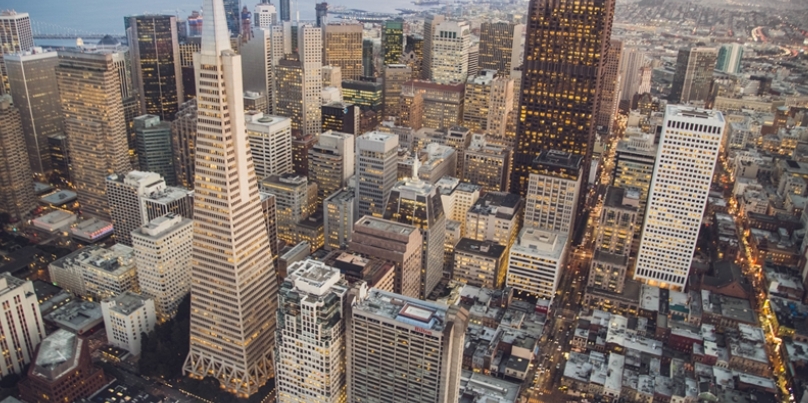
When people ask me what my favorite book is, I invariably reply: “The Pirates Dilemma”. The book talks about disco, hip-hop, punk, graffiti and how modern technologies have served as the basis for ideas and innovations in the culture of young people, which made it more local and at the same time more global. It really captures.
And looking back you can find the roots of the modern social media revolution - back in the distant 70s or even earlier.
Punk 70s of the last century was the beginning of the revolution. What has changed by our time? We now have platforms and we can easily communicate with each other in social media and create.
')
So, before you is the story of social media: how it all began, why Facebook took a leading position (and why it can not hold it) and a few predictions about where it all goes.
Well, let's start.
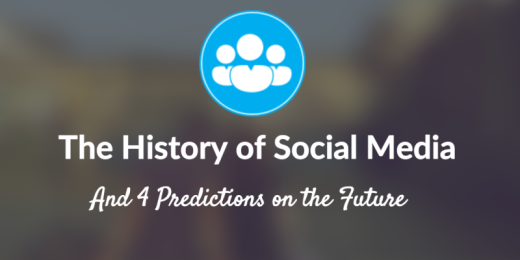
So, first about the most important thing. Why am I writing all this?
I really want this article to be valuable for readers, but I have to admit that its creation was not the fruit of pure altruism. In Buffer, we always think about what will happen next.
Over the past 12 months, we have lost half of our traffic. And so we began to study ourselves in order to understand how we would stay in the top.
Every day I took notes and wrote about marketing in social media, but I didn’t spend enough time expressing how difficult it all was, what it would all lead to, and what it means personally for me as a marketer and for our entire Buffer team .
In this article, I talked about learning social media. This is a story about how the current situation developed and an attempt to guess what all this will lead to.
A brief history of social media (something you probably didn't know yet)
You may have watched the movie "Social Network", filmed in 2010 by David Wincher (David Fincher), which tells the story of Facebook, or you may have read about the appearance of The Facebook in Harvard University dorm.
And it's pretty easy to believe that social media started like that.
However, despite the fact that Facebook soared to the top and became the most popular social network in the world, the sparks of the social media revolution appeared long before Mark Zuckerberg went to college.
Beginning of the revolution
The Pirates Dilemma begins with close attention to a quotation from a punk fanzine and a pattern with the positions of three fingers on the mane of a guitar with the signature:
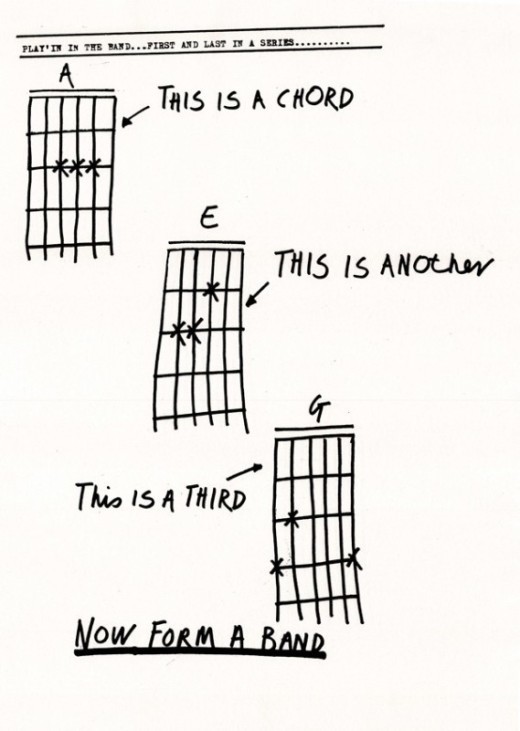
Here is a chord, another one, and this is the third one. Now create your own group.
The punk movement reduced barriers to creating music and inspired a generation of insurgents and creators to create themselves.
And culturally, the boundaries between content creators and its consumers began to blur (this is now a very important part of modern society — anyone can create and distribute content).
What started with punk, continued in disco, where New York DJs put together various recordings to create their own music, then hip-hop came and so on. Social media is a natural evolution of these subcultures, which have become a manifestation of an innate human desire for creation and improvement.
Dave Allen, a digital strategist and at the same time a bass player from the group Gang of Four, who played music in the post-punk genre, explains it this way:
The punk rock ideology encourages everyone to take the instrument in their hands, learn to strum on it, and then let others hear it. We had something to say, and we found a way to speak. Today you can do it online, and this is punk rock, and your computer can be your instrument.
Just like disco and hip-hop, social media has penetrated and influenced mainstream pop culture. And although social media was developing at an incredibly fast pace, it did not happen in an instant.
The first "social network"
Since the very invention of the Internet, social media has evolved — from the first e-mail service in 1971 and Usenet in 1979 to the free web hosting service GeoCities in 1995, which allowed everyone to set up a personal home page.
Nevertheless, Six Degrees is considered the first social network.
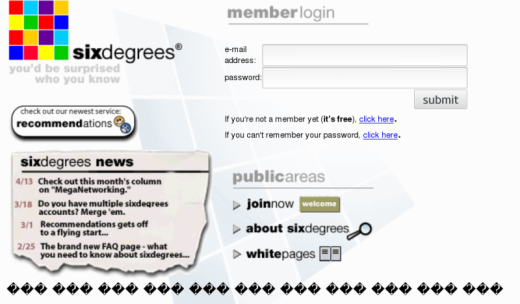
From Wikipedia:
She was named after the theory of six handshakes. The network allowed users to correspond with friends, family members, and acquaintances (both from the network and from outside); unregistered users were asked to register on the site. Users could send messages and post information for people from the first, second and third level of links, as well as see their links with any user on the site.
The Six Degrees network was launched in 1997 and gained about 3.5 million registered users. It was bought by YouthStream Media Networks in 1999 for $ 125 million.
So why aren't we using Six Degrees right now?
Much depended on time. In 1997, the Internet infrastructure was not ready for the development of social networks. There were millions of registered users on the site, but the growth was limited due to the fact that not enough people had an Internet connection.
The evolution of social media
Six Degrees were followed by social networks based on “social circle models”. This is a slightly different approach than the model based on the theory of six handshakes.
Unlike the ability to connect with people from the first, second and third level of connections that Six Degrees provided, networks with social circles allow you to contact anyone, regardless of whether these people are your best friends or just acquaintances.
To emphasize exactly how social media evolved, let's take a look at a few of the original platforms that helped develop social media.
Friendster
Friendster dating site was founded in 2002 and at the very dawn there were more than 100 million users. Unfortunately, after many attempts to restructure Friendster was closed on June 14, 2015.
For many, this site was the first acquaintance with the world of social networks, but like many others, this network did not become part of the daily routine of users, and the latter kept it when new, brighter social networks appeared.
Myspace
From 2005 to 2008, Myspace was the largest social network in the world, and in June 2006, Google surpassed the site for the title of the most visited website in the United States.
Facebook overtook Myspace in May 2008, and since then the platform has been trying to catch up with its competitor and attract users with innovations - so far without success.
What causes the death of social networks
There are many reasons for users leaving social networks - there are hundreds, if not thousands. The Swiss Technical School Zurich studied networks such as Friendster and MySpace in order to find the cause of the death of social networks.
The following explanation was found on the Wired site:
The decrease in the number of users occurs when they begin to feel that the time and effort (cost) applied to be part of a social network outweigh its benefits. If one person leaves the network, it may entail the departure of his friends. When more people start leaving the network, this causes a cascade effect, due to which the number of users is significantly reduced.
And while networks like Friendster and Myspace had tens and hundreds of millions of registered users, the connections between them were not strong. A large number of users had few connections, and because of this they did not feel a strong connection with such networks.
David Garcia, a professor at Zurich Swiss Higher Technical School, explains how users leave the network as follows:
First, users with a small number of connections (those who are “along the perimeter of the social network”) begin to leave the network, which leads to a decrease in benefits for those who have many connections (and is the heart and core of the network) - this is the cascade reaction from the edges to the very heart of the social network.
You can see an explanation of this in the figure below (Friendster was used as an example):
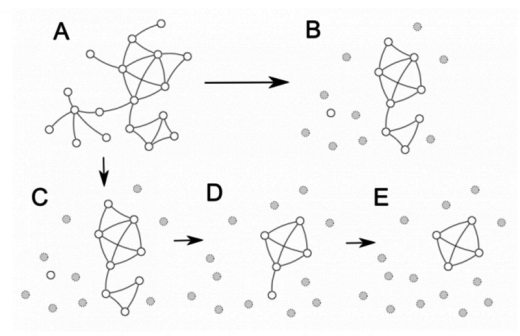
The figure shows that to build a social network is not enough just a huge user base. Strong social networks are based on strong connections between people - not huge groups of strangers or random acquaintances.
Source: https://habr.com/ru/post/297128/
All Articles